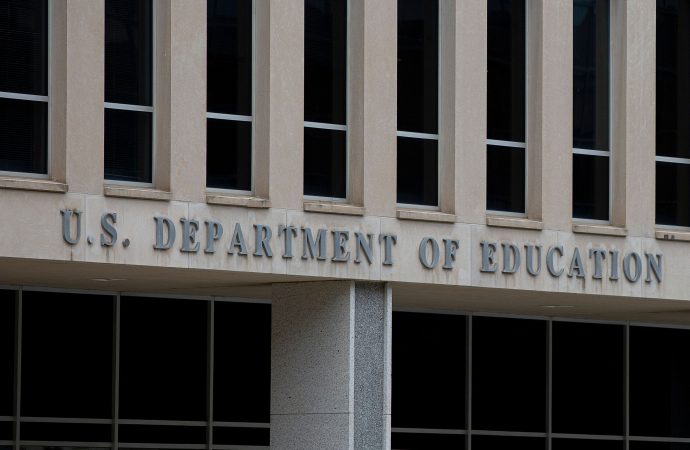Introduction: Ensuring fairness in education is not just a moral imperative; it’s also a legal responsibility of the U.S. Educational Department. By creating equitable learning environments, the department aims to provide every student with equal opportunities to thrive. This article delves into the legal obligations and strategies employed by the department to foster fairness in
Introduction:
Ensuring fairness in education is not just a moral imperative; it’s also a legal responsibility of the U.S. Educational Department. By creating equitable learning environments, the department aims to provide every student with equal opportunities to thrive. This article delves into the legal obligations and strategies employed by the department to foster fairness in education.
Education plays a pivotal role in shaping the future of individuals and society as a whole. However, disparities in access and opportunities can hinder the realization of this potential. The U.S. Educational Department acknowledges its legal responsibilities in fostering fairness and equity in education. By implementing robust policies, promoting inclusive practices, and collaborating with stakeholders, the department endeavors to create environments where every student can thrive.
Legal Foundations for Equal Education

Image by: yandex.com
The U.S. Educational Department operates within a legal framework that upholds the principle of equal education opportunity for all. Various federal laws, including the Civil Rights Act of 1964 and the Individuals with Disabilities Education Act (IDEA), lay the groundwork for ensuring fairness in education. These laws prohibit discrimination on the basis of race, color, national origin, sex, disability, or age and mandate accommodations for individuals with disabilities.
The Role of Civil Rights Laws
Civil rights laws form the backbone of efforts to promote fairness and equity in education. Title VI of the Civil Rights Act prohibits discrimination based on race, color, or national origin in programs and activities receiving federal financial assistance. Similarly, Title IX prohibits sex-based discrimination in education programs and activities. These laws not only prohibit discriminatory practices but also require proactive measures to address disparities and foster inclusivity.
Addressing Discrimination and Bias
The U.S. Educational Department is committed to addressing discrimination and bias in all its forms within educational settings. Through initiatives such as the Office for Civil Rights (OCR), the department investigates complaints of discrimination and ensures compliance with civil rights laws. Additionally, the department provides guidance to educational institutions on fostering inclusive environments and mitigating bias in policies and practices.
Implementing Equitable Practices in Education

Image by: yandex.com
Education equity goes beyond mere access to encompass ensuring that all students have the resources, support, and opportunities needed to succeed. The U.S. Educational Department employs various strategies to implement equitable practices in education.
Access to Quality Education for All
One of the primary objectives of the department is to ensure access to quality education for all students, regardless of their background or circumstances. This includes efforts to reduce disparities in resources, such as funding, facilities, and instructional materials, among schools serving different populations. Additionally, initiatives like magnet schools and school choice programs aim to provide diverse educational options to students.
Mitigating Socioeconomic Disparities
Socioeconomic factors can significantly impact educational outcomes. To address this, the U.S. Educational Department supports programs aimed at mitigating socioeconomic disparities in education. This may include providing funding for schools in low-income communities, offering free or reduced-price meals, and supporting initiatives to close the achievement gap.
Special Education and Inclusive Practices
Ensuring equitable access to education also entails meeting the diverse needs of students, including those with disabilities. The department oversees the implementation of IDEA, which mandates the provision of special education and related services to eligible students. In addition to providing funding, the department promotes inclusive practices that integrate students with disabilities into general education settings to the maximum extent appropriate.
Ensuring Fairness Beyond the Classroom

Image by: yandex.com
Creating equitable learning environments requires addressing factors that extend beyond the confines of the classroom. The U.S. Educational Department is committed to fostering fairness and inclusivity in all aspects of school life.
Safe and Supportive School Environments
Safety and support are essential for creating an environment where students can learn and thrive. The department supports initiatives to prevent bullying, harassment, and violence in schools, ensuring that all students feel safe and valued. Additionally, efforts to promote mental health awareness and provide counseling services contribute to creating supportive school environments.
Addressing Discipline Disparities
Disproportionate disciplinary practices can exacerbate inequalities in education. The U.S. Educational Department works to address discipline disparities by promoting alternatives to punitive measures, such as restorative justice practices and positive behavior interventions. Additionally, the department provides guidance to schools on creating disciplinary policies that are fair, consistent, and non-discriminatory.
Promoting Diversity and Inclusion
Diversity enriches the educational experience and prepares students for success in a multicultural society. The department promotes diversity and inclusion through initiatives that celebrate cultural diversity, promote cultural competence among educators, and integrate diverse perspectives into the curriculum. By fostering an inclusive learning environment, the department prepares students to thrive in an increasingly interconnected world.
Collaborative Efforts Towards Equity
Achieving equity in education requires collaboration and partnership among various stakeholders, including educators, parents, community members, and policymakers. The U.S. Educational Department actively engages in collaborative efforts to promote fairness and inclusivity in education.
Conclusion
Engaging with communities is essential for understanding and addressing the unique needs of students and families. The department collaborates with community organizations, advocacy groups, and other stakeholders to develop initiatives that meet the needs of diverse populations. By involving communities in decision-making processes, the department ensures that policies and programs are responsive to local contexts.
















